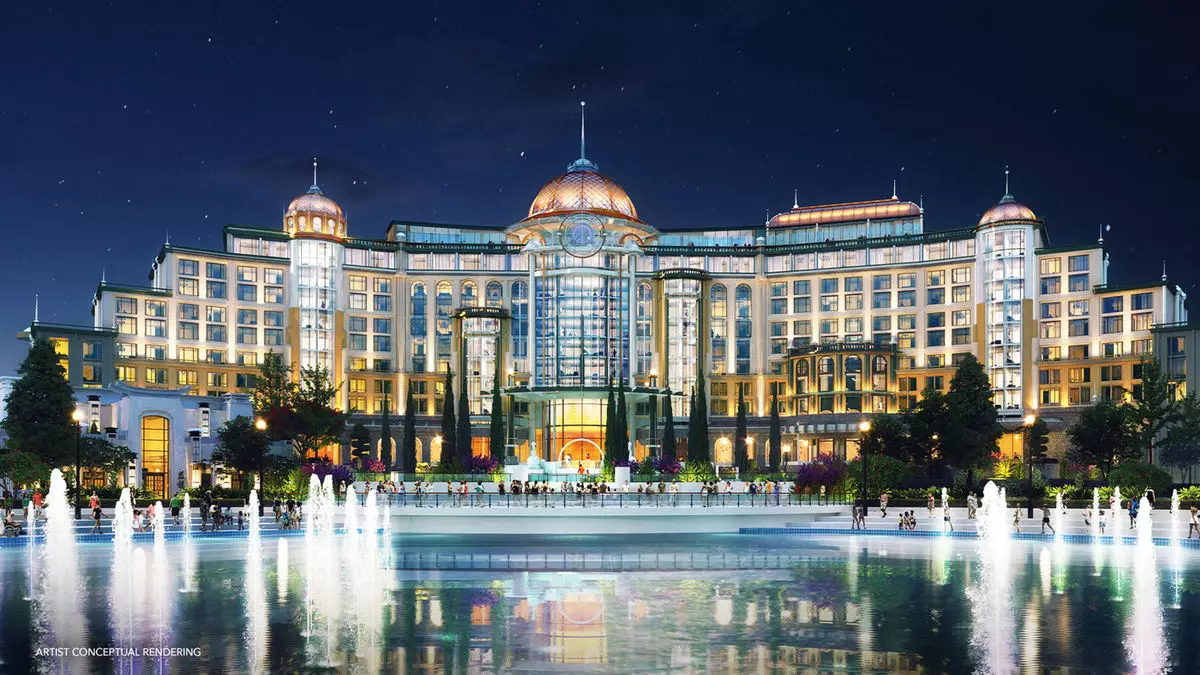Orlando, often synonymous with thrilling amusement parks, is witnessing a dynamic change in its tourism metrics as it transitions from pandemic highs to a more stable, pre-pandemic norm. While international visitors are flocking to the city, indicative of a vibrant renaissance, domestic travel is showing signs of softening, reflecting broader national trends in leisure travel. The latest reports from Visit Orlando, the city’s tourism promotional body, reveal a subtle yet palpable shift in occupancy and demand within metro Orlando hotels. Year to date, from January to August, there has been a 2.4% reduction in hotel occupancy and a 0.9% dip in demand. Concurrently, the average daily rate (ADR) has experienced a near stagnation with only a 0.1% uptick, whereas revenue per available room (RevPAR) has seen a notable decline of 2.3%.
Despite these fluctuations, visitor numbers remain steady, with approximately 74 million travelers in the previous year. This stability is attributed mainly to a flourishing international market, which recorded a 25% increase, bringing in around 6.1 million global tourists in 2023. Casandra Matej, CEO of Visit Orlando, noted, “While we did observe a slight dip in domestic tourism, the international growth has been particularly robust.” The divergence in domestic versus international trends reflects a broader shift in U.S. travel patterns, as leisure travel appears to be cooling from its post-pandemic peak.
Looking ahead, Visit Orlando is predicting modest growth in overall visitation numbers in 2024, estimating an increase of 1% to 2%. Key to this optimism is the upcoming launch of Universal Orlando’s much-anticipated third theme park, Epic Universe. Notably, this project is expected to significantly contribute to both local employment and tourism spending. With more than 50 attractions, shops, and dining experiences, Epic Universe is poised to rejuvenate interest in the Orlando area, enhancing its status as a multifaceted destination.
Robert Agrusa, CEO of the Central Florida Hotel & Lodging Association, suggests that although this summer presented a slight decrease in demand, optimism abounds for a robust 2025. He highlighted the opening of new properties and attractions as pivotal to revitalizing the market. “The introduction of Epic Universe represents a major opportunity for our community,” Agrusa stated, hinting at the transformative potential of this new entertainment venue.
Nevertheless, some local travel advisors have noticed a shift in consumer behavior. Katie Coleman from SuperfamilyTravelistic shares that clientele demand for Universal Studios has dipped slightly, likely due to anticipation surrounding Epic Universe. Customers, it appears, are adopting a wait-and-see approach, cautious about committing to plans until new offerings debut.
In light of shifting visitor preferences, Orlando’s tourism board is deliberately promoting experiences beyond its renowned theme parks. This strategy appears to be gaining traction, especially among families seeking diverse activities that offer more value. Casandra Matej emphasized Orlando’s untapped potential as an ecotourism hub, highlighting activities like kayaking and swimming with manatees as unique local experiences. This approach not only broadens the appeal of Orlando, but it also encourages a more sustainable and immersive travel experience.
Moreover, the cultural landscape of Orlando is growing, featuring elevated offerings such as Broadway shows at the Dr. Phillips Center for the Performing Arts and the return of Blue Man Group, scheduled to open next year. These developments are appealing to a demographic that values cultural engagement as much as entertainment.
Furthermore, there’s a discernible shift among visitors toward vacation rentals and non-theme park activities, with many families showing interest in sports events and other local attractions. Coleman noted a trend where families prioritize cost-effective alternatives, opting for NBA games or attractions like Gatorland and the Kennedy Space Center.
The evolving identity of Orlando as a tourism destination highlights its continuous maturation as a community. Agrusa remarked on the city’s relative youth in terms of development, noting that Orlando is still in the early stages of establishing itself amid global travel destinations.
As Orlando seeks to solidify its image, it’s clear that fostering a diverse offering of attractions and experiences will be essential. By appealing to both adventure-seekers and those drawn to cultural enrichment, Orlando is poised to redefine its tourism landscape for years to come. As the city embraces this multifaceted approach, it will not only sustain its tourism momentum but also invite visitors to discover a broader spectrum of what Orlando has to offer.


Leave a Reply